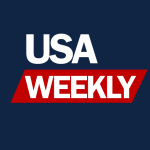In a high-stakes move, Pfizer has secured Metsera, a company known for its innovative treatments targeting obesity, through a competitive bidding process that reached an astonishing $10 billion. This acquisition positions Pfizer at the forefront of a rapidly growing market for obesity drugs but it also brings with it substantial risks.
The question now looms large: Will this hefty investment pay off or will Pfizer come to regret it?
In a candid interview with CNBC on Monday, Pfizer’s CEO, Albert Bourla, articulated the company’s perspective on this significant gamble: “If the whole thing fails, then we overpaid. If the whole thing succeeds, then it’s a fucking good deal.” His statements underscore the dual-edged nature of this strategic decision.
Historically, Pfizer has faced challenges in making its mark in the lucrative obesity drug market. The company previously missed out on the initial surge of successful weight loss medications and subsequently attempted, yet failed, to launch its own competitive offerings. This latest acquisition is part of Pfizer’s broader effort to regroup and revitalize its business, especially as revenues from its widely relied-upon COVID-19 vaccine and antiviral treatment have seen a sharp decline since their peak during the pandemic.
The obesity treatment market is burgeoning, with growing public health concerns driving increased demand for effective solutions. Many consumers are looking for sustainable weight loss options backed by science, and pharmaceutical companies are racing to capitalize on this trend. Pfizer’s acquisition of Metsera indicates its aggressive intention to finally gain a foothold.
Obesity-related health issues, including diabetes, hypertension, and cardiovascular diseases, have reached epidemic proportions across the globe. The World Health Organization (WHO) categorizes obesity as one of the most serious public health challenges of the 21st century. With an ever-expanding population of individuals seeking effective management methods, the market for obesity drugs is projected to witness substantial growth in the coming years.
Pfizer’s move to acquire Metsera could be seen as a strategic realignment targeting this expanding demographic. Despite experiencing significant reductions in its stock value—over 50% since the pandemic’s peak—the company is now banking on this bold acquisition to reinvigorate its business model. Furthermore, with recent competitive obstacles proving challenging, Pfizer is investing heavily to stay relevant in the pharmaceutical landscape.
The potential success of Metsera’s investigational weight loss treatments could position Pfizer advantageously among its competitors, allowing it to reclaim its status in a market it has struggled to penetrate. Yet, the highly competitive nature of the pharmaceutical industry means that market acceptance of these new products is not guaranteed, adding a layer of uncertainty.
Moreover, the financial implications of the deal are significant. Valued at up to $10 billion, the acquisition places immense pressure on Pfizer to deliver results quickly. Analysts will undoubtedly watch closely to assess whether the company can effectively transition Metsera’s portfolio from research-phase products into commercially viable drugs.
Notably, companies like Novo Nordisk, who have established themselves early in the market with successful weight loss drugs, are formidable competitors. Pfizer’s optimism will be tested as it seeks to capture market share in an industry already populated with potent players.
As mentioned earlier, Bourla’s remark reflects a broader sentiment within Pfizer. Should the investment in Metsera yield successful outcomes, it would not only bolster the company’s drug lineup but could ultimately help revitalize investor confidence and market positioning. Conversely, failure could present severe repercussions for the company’s future financial health and strategic direction.
As Pfizer embarks on this bold venture, the outcome remains uncertain. The company’s patience and strategic execution will be critical as it navigates this new territory in an attempt to define its future and solidify its standing in the ever-evolving landscape of obesity pharmaceuticals.








